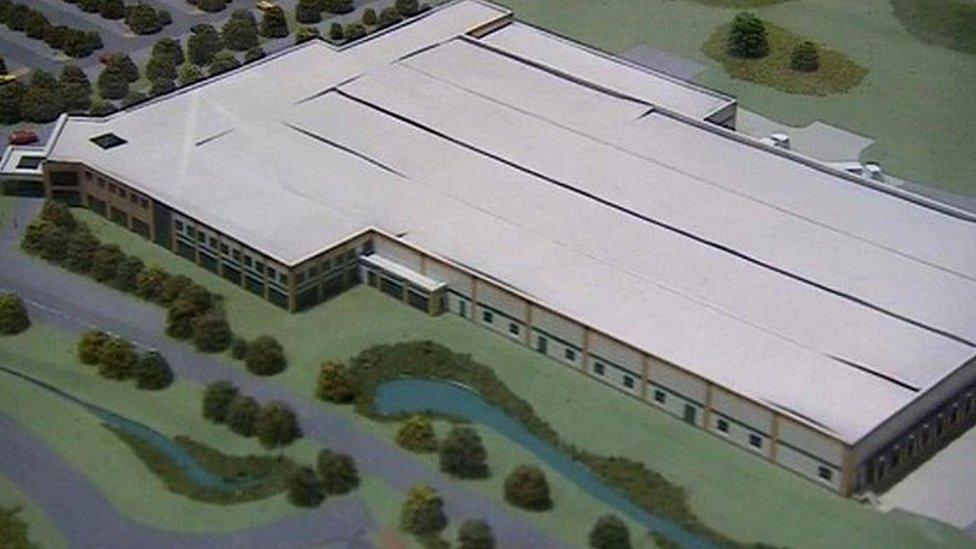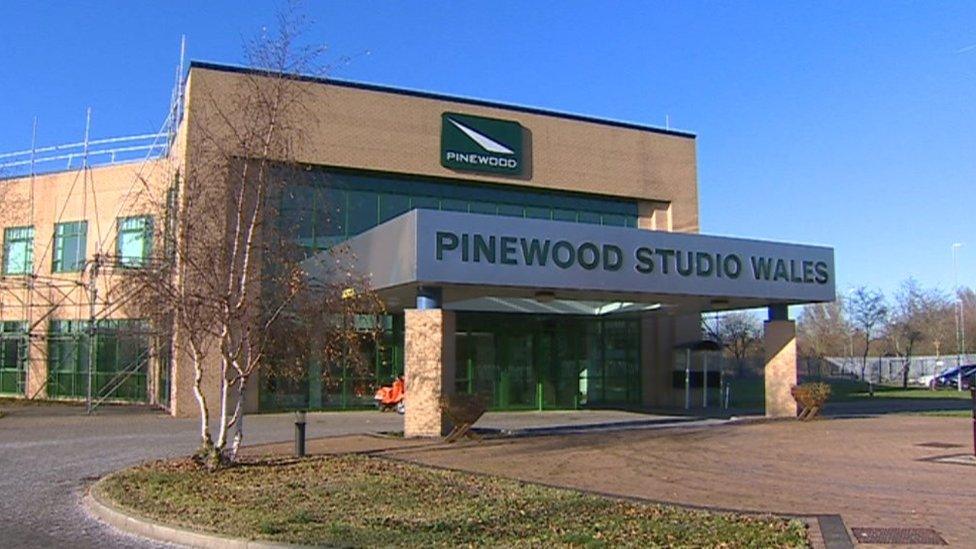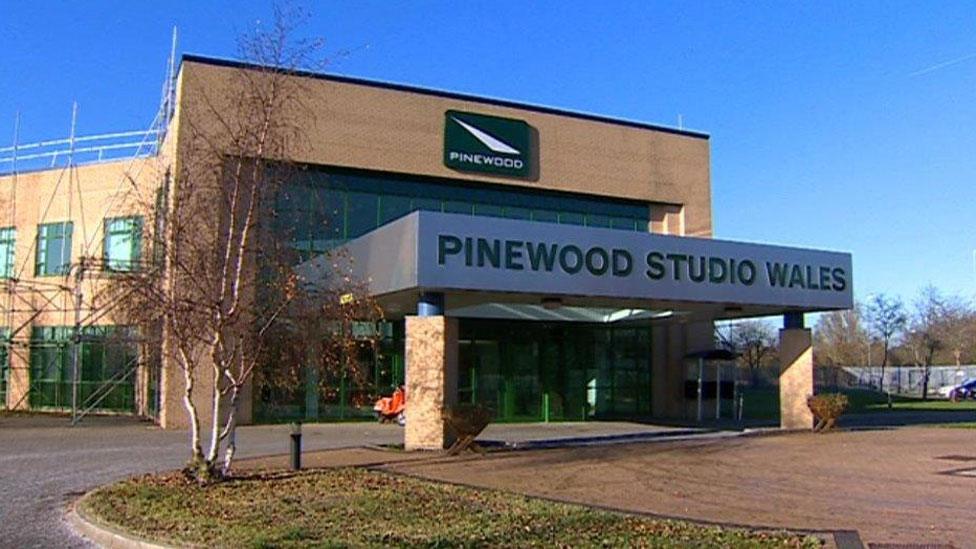Taxpayers pay £400k a year to run Pinewood Studio Wales
- Published
- comments

Pinewood moved on to the site in February 2015
A famous film studio which opened a site in Wales in 2015 is now costing the taxpayer more than £390,000 a year to keep it open, it has been revealed.
Pinewood used to rent the studio under a now-scrapped 15-year lease.
The site's owners, the Welsh Government, spent £9.5m on buying and fitting it out, but it is now covering the cost of the loss-making operation and paying Pinewood a fee to run it.
The Welsh Government said it was proud of its links with Pinewood.
A Wales Audit Office report says it is estimated to be costing ministers £392,000 a year to run the site at the former Energy Centre in Wentloog, between Cardiff and Newport.
But the full cost to the taxpayer is not known because Pinewood is being paid a management fee, which the audit office has kept confidential.
'Turkey'
Tory AM Suzy Davies said the scheme was a "turkey". A report from the Wales Audit Office said the anticipated demand for Pinewood Studio Wales did not materialise and that the site was not suitable for some high-end productions.
Welsh Government officials have admitted the costs do not represent good value for money.
Productions which have used the studio included Showdogs, Journey's End and TV drama Sherlock.

Pinewood rented the Wentloog location for free for two years
Pinewood had agreed to a 15-year lease for the site, which it had picked after a Welsh Government search for suitable locations, with an initial rent of £546,876 a year.
But marketing costs were paid for by the Welsh Government, to the tune of £525,600 a year.
Auditor general Huw Vaughan Thomas said the anticipated demand for the studio did not materialise - and was run at a loss by Pinewood once a two-year rent-free period on the property was up.
'Unsuitable'
By early 2017 it was apparent that the height of the building's eaves - 25 feet - meant it was unsuitable for high-end productions that need aerial panoramic shots.
The collaboration deal with Pinewood was scrapped in October that year following talks between the Welsh Government and Pinewood, ending the studio lease and Pinewood's involvement with the £30m fund.
Pinewood would continue to operate the studio on behalf of the Welsh Government under a three-year agreement, but the costs would be met by ministers.

Their Finest remains the only project that has fully recouped the loan provided by the investment fund
A total of £13.7m has been invested by the fund into 14 TV, film and video game projects, up on the £11.9m previously disclosed last year.
So far £4.2m has been recouped, making a net loss to date of £9.5m - although projects are at different stages of production and release.
Only one project - Their Finest - has recouped the investment made so far. Four projects have recouped some money and nine have not recouped any.
'Detrimental impact'
The opening of Wolf Studios Wales by Bad Wolf - on a site leased from the Welsh Government on commercial terms - was also alleged by Pinewood to have had a detrimental impact on their Welsh studio.
Bad Wolf has been backed by a £9m funding package, including an initial loan of £4.5m.
Assembly Welsh Conservative culture spokeswoman Suzy Davies said: "This golden goose proved to be just another one of their turkeys."
"The promise was hundreds of jobs and millions of pounds to the Welsh economy.

Take Down was filmed in Wales and received a £3m loan from the Welsh Government's investment budget
"We now have suspicions confirmed by the auditor - Pinewood couldn't find the films, couldn't fill the studios, there have been no sustainable jobs and there was no safeguard within its agreement with Welsh government preventing conflict of interest."
Assembly culture committee charwoman Bethan Sayed said some parts of the report were "worrying".
She said there were questions over the suitability of the site, what persuaded the Welsh Government that it was a sound investment and whether officials had the expertise needed.
Culture minister Lord Elis-Thomas: "This all happened before I was in post"
A Welsh Government spokeswoman said their decision to attract Pinewood was an "opportunity that Wales could not afford to miss out on."
"Pinewood were fully aware of our plans to enter into a working agreement with Bad Wolf and of the benefits for them of a thriving Welsh creative sector," the spokeswoman added.
"We remain proud of our association with Pinewood, and of the studio which is currently operating at full capacity and is home to Doctor Who, another TV production and a feature film.
"As commercial investments in film and television often take several years to fully repay, we expect to see further economic benefits as result of Pinewood's successes."
Meanwhile Culture Minister Lord Elis-Thomas distanced himself from the row, telling BBC Wales: "This all happened before I was in post."
But he added that the Welsh Government did not want "any adverse public reaction" to any investments it had made in the sector.
Pinewood declined to comment.
- Published21 December 2017

- Published23 November 2017

- Published29 August 2017

- Published17 February 2014
